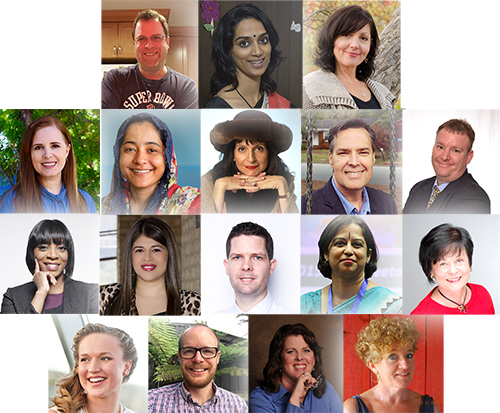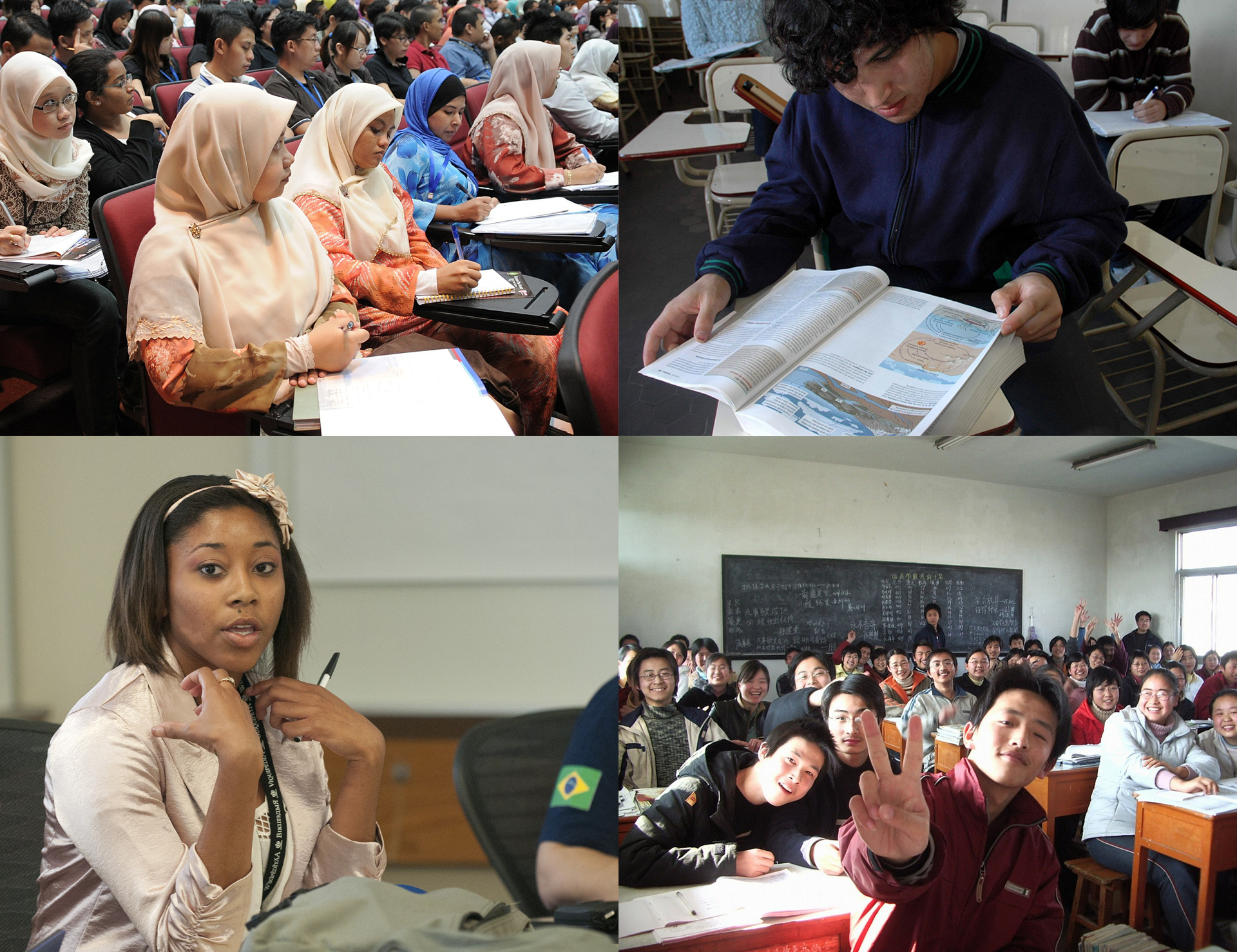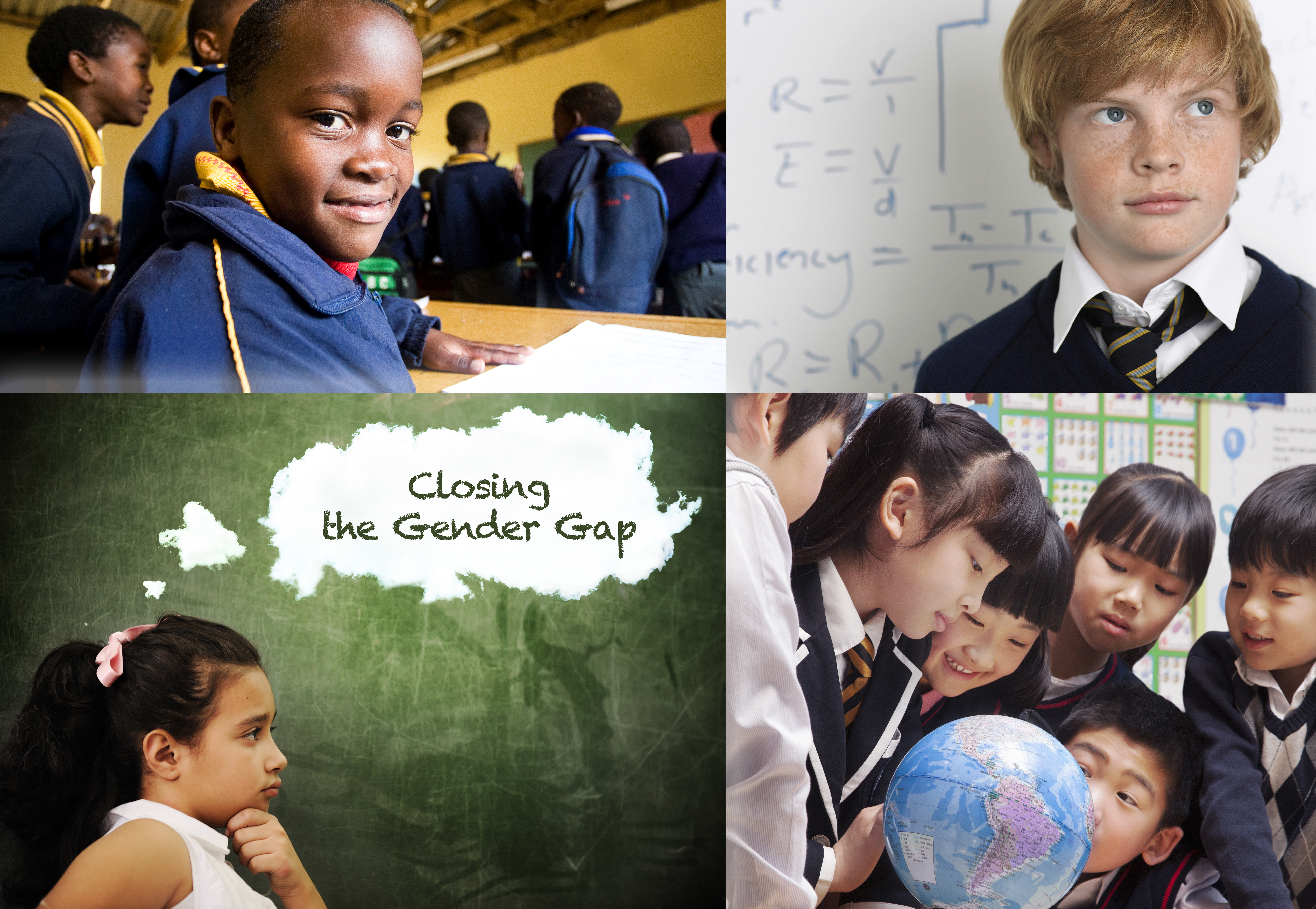
The role of teachers is paramount to raising educational standards around the globe. In countries such as Finland, Singapore and South Korea, teachers are recruited from the most qualified graduates, are highly trained, respected and paid well. But that’s not the case in every country. According to Mckinsey’s “Closing the Talent Gap: Attracting and Retaining Top-Third Graduates to Careers in Teaching”, in the United States for example, csak 23 percent of new teachers come from the top third, és csak 14 percent are in high poverty schools, where the difficulty of attracting and retaining talented teachers is particularly acute. If nations are serious about attracting the best talent to educate their children, they clearly need to improve the value proposition to potential candidates.
Globális tanár Bloggerek úttörők és a feltalálók olyan területeken, mint a technológia integrálása, matematika edzés, gyógypedagógiai, tudomány utasítás, és a nemek közötti egyenlőség. Alapítottak iskolákat, írott tananyagok, és vezette tantermek 13 hogy a különböző országokban átfogja minden lakott kontinensen a Földön. Ezek a tanárok képessé és gazdagítják a fiatalok életében szinte minden elképzelhető háttér.
Ma A Global Search for Education, a Top Global tanár Bloggerek megosztják választ ebben a hónapban a kérdés: Hogyan ösztönözzük a legjobb és legokosabb lenni az oktatók?
The short answer to our question for Miriam Mason-Sesay (@EducAidSL) in Sierra Leone is to “a fiatalok körében egy új paradigma. Ha a siker határozza meg a tekintetben, hogy az emberi; ha siker meghatározása szempontjából, hogy sok ember van volt pozitív hatása az én létmód és a velük foglalkozó; Ha a siker szempontjából meghatározott hoztam a világ egy jobb hely a módon kezelem mások élni az életem, akkor van egy nagy izgalom, hogy része az egyetlen szakma, ahol tudunk valóban megváltoztatni életesélyeit fiatalok százai.” Tovább.
Maarit Rossi (@pathstomath) offers crucial insight into the question, being from Finland–arguably the country with the best teachers in the world. She thinks it boils down to simple concepts like: “respect of the profession, flexibility of the curriculum, tanárok’ high level of education and autonomy of teaching methods.” Finnországban, there are no school inspectors nor national tests. Teachers themselves are trusted to observe and evaluate their students. “I make my own tests or make them together with a colleague. We don’t give much homework.” Bővebben.
“Within the most challenging schools there are educators whose love for what they do can be infectious because they see value of impacting the lives of children,” says Nadia Lopez (@TheLopezEffect) whose school is in one of New York’s low income neighborhoods where recruiting and keeping skilled teachers is very difficult. Check out Nadia’s top tips to attract the best and brightest to a career in education: Bővebben.
Adam Steiner’s blog (steineredtech) is inspired by the award-winning book, Szakmai Capital (Szerzők Andy Hargreaves @HargreavesBC and Michael Fullan @MichaelFullan1). Szakmai Capital recognized that teaching cannot be scripted and emphasized collective responsibility and shared success as key to school success. Steiner notes that the lessons of Szakmai Capital identify “key factors in recruiting and retaining the best teachers”: Bővebben.
Pauline Hawkins (PaulineDHawkins) asserts “American teachers are scapegoats for everything wrong with our society.” So how does Pauline suggest we bring respect to the profession? The first step in her multiple step process is “getting rid of the ridiculous evaluation system based on standardized tests and tied to teacher pay. Master teachers know that their true effectiveness cannot be measured by a test.” Bővebben.
“It starts with us! The people in education right now!” mondja Craig Kemp (mrkempnz) who believes that part of the problem is the media tends to show the hardships of being an educator. Craig, who credits his Mum for his passion to teach, says educators must promote and share what they do in positive ways. “One comment can influence someone to become a teacher.” Bővebben.
Rashmi Kathuria (@rashkath) from India notes, “Teaching is not just a job from 8:00 am to 3:00 pm. It is a time consuming job even after regular school hours.” When teachers go home they don’t usually get to relax; teachers prepare assignments, do corrections, and work at home preparing lesson plans. They also, “take up online self-professional development from home.” Rashmi recommends incentives for teachers who do extraordinary work such as “a subsidized internet connection to work from home and remain connected with students through their blogs/wikis/online classrooms.” Bővebben.
“There are no magic tricks” says Dana Narvaisa (@dana_narvaisa) from Latvia who shares experiences from her own journey. “If you’re a leader in your twenties or thirties, you’re looking for growth, you’re looking for mentors, for role models. To get the best and brightest to become educators, they need at least a few more like-minded people on their team for long term success.” Tovább.
Money and common sense are key, notes Todd Finley (finleyt) quoting Stanford Professor Linda Darling-Hammond: “Nearly all of the vacancies currently filled with emergency teachers could be filled with talented, well-prepared teachers if 40,000 service scholarships of up to $25,000 each were offered annually” to offset teacher education costs based on merit. Curriculum that’s too focused on standardized test scores is “soul killing” and evaluation by VAM Scores should immediately stop. “To attract teachers, we need the public will to support service scholarships, increase pay, stop over-testing, and terminate verifiably wrong-headed evaluation practices.” Bővebben.
Richard Wells (@EduWells) takes a different approach to the question. “I believe it makes for a more positive debate when people discuss the potential growth of current teachers, than that of asking: ‘how do we attract better people?” So how does New Zealand build the best and the brightest teachers? Bővebben.
Katherine Franco Cardenas (@ProfKaterineFra) of Colombia writes for A Global Search for Education in her native language of Spanish and believes that, “one way to inspire the best and brightest to become an educator lies in providing the opportunity for direct interaction with teachers making a difference in the context in which they operate.” It’s important for teachers to meet inspiring educators to serve as a role model for how an educator can make a positive effect on their communities. Tovább.
A Top Global tanár Bloggerek egy havi sorozat, ahol a pedagógusok szerte a világon ajánlat tapasztalt, ugyanakkor egyedülálló veszi a mai legfontosabb témák. CMRubinWorld használja a platform propagálni a hangját a leginkább nélkülözhetetlen emberek a mi tanulási intézmények, tanárok.

Warren Sparrow
Rashmi Kathuria, Maarit Rossi
(Az összes kép jóvoltából CMRubinWorld)
Csatlakozz hozzám és világszerte elismert szellemi vezetők többek között Sir Michael Barber (UK), DR. Michael blokk (Az US), DR. Leon Botstein (Az US), Professzor Clay Christensen (Az US), DR. Linda Darling-Hammond (Az US), DR. MadhavChavan (India), Professzor Michael Fullan (Kanada), Professzor Howard Gardner (Az US), Professzor Andy Hargreaves (Az US), Professzor Yvonne Hellman (Hollandiában), Professzor Kristin Helstad (Norvégia), Jean Hendrickson (Az US), Professzor Rose Hipkins (Új-Zéland), Professzor Cornelia Hoogland (Kanada), Tisztelt Jeff Johnson (Kanada), Mrs. Chantal Kaufmann (Belgium), DR. EijaKauppinen (Finnország), Államtitkár TapioKosunen (Finnország), Professzor Dominique Lafontaine (Belgium), Professor Hugh Lauder (UK), Lord Ken Macdonald (UK), Professor Geoff Masters (Ausztrália), Professzor Barry McGaw (Ausztrália), Shiv Nadar (India), Professzor R. Natarajan (India), DR. PAK NG (Szingapúr), DR. Denise Pope (US), Sridhar Rajagopalan (India), DR. Diane Ravitch (Az US), Richard Wilson Riley (Az US), Sir Ken Robinson (UK), Professzor Pasi Sahlberg (Finnország), Professzor Manabu Sato (Japán), Andreas Schleicher (PISA, OECD), DR. Anthony Seldon (UK), DR. David Shaffer (Az US), DR. Kirsten Magával ragadó Are (Norvégia), Chancellor Stephen Spahn (Az US), Yves Theze (LyceeFrancais számú amerikai egyesült államokbeli), Professor Charles Ungerleider (Kanada), Professzor Tony Wagner (Az US), Sir David Watson (UK), Professzor Dylan Wiliam (UK), DR. Mark Wormald (UK), Professzor Theo Wubbels (Hollandiában), Professzor Michael Young (UK), és professzor Minxuan Zhang (Kína) mivel azok feltárása a nagy kép oktatási kérdés, hogy minden nemzet ma szembesül.
A Global Search Oktatási közösségi oldal
C. M. Rubin a szerző két legolvasottabb internetes sorozat, amely megkapta a 2011 Upton Sinclair díjat, “A Global Search for Education” és “Hogyan fogjuk olvasása?” Ő a szerzője a három bestseller könyv, Beleértve The Real Alice Csodaországban, a kiadó CMRubinWorld, és egy Disruptor Alapítvány ösztöndíjasa.






Legutóbbi hozzászólások